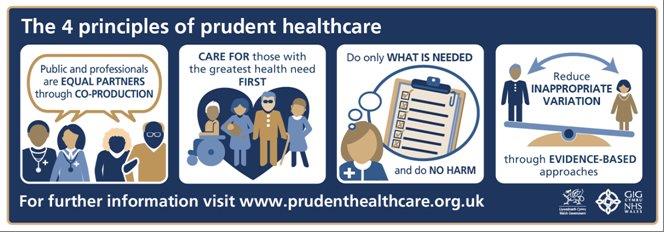Value-based healthcare is sexy
A few days ago I was reminded yet again of the importance of words and how the way we use language has the ability to enthuse people....or switch them off entirely. I had been asked to speak on the topic of value-based healthcare at a respiratory study day hosted by the British Lung Foundation. Why? Well a local value-based healthcare project had resulted in significant investment in pulmonary rehabilitation and the ability to join this up with further community interventions to support people living with Chronic Obstructive Pulmonary Disease earlier in the course of their illness. The participants in this project had therefore become evangelists for this way of working across programmes of healthcare and felt it should be discussed.
It didn't look promising. I had the last slot of the day, the coffee had run out and the last Welsh cake had been eaten. The title of my talk was uninspiring and 20% of the audience left before I began. For those that remained and indulged me though, there was a transformation in mood and a fascinating conversation triggered about how clinicians can influence decision-making on resource allocation and how we can really begin to change the way people act with the healthcare system for better outcomes.
What is value?
Defined by Professor Michael Porter at Harvard Business School, value is defined as a function of outcomes and costs. Therefore to achieve high value we must deliver the best possible outcomes in the most efficient way, outcomes which matter from the perspective of the individual receiving healthcare and not provider process measures or targets. Sir Muir Gray expands on the idea of technical value (outcomes/costs) to specifically describe 'personal value' and 'allocative value', encouraging us to focus also on shared decision making, individual preferences for care and ensuring that resources are allocated for maximum value.
Why is this important?
On the face of it, this seems obvious. Working towards high value healthcare is a no brainer and yet we seem to find it so difficult.
It is unsurprising that the best outcomes are achieved at lower cost when we place an emphasis on prevention, early diagnosis and the involvement of patients in managing their care and records. Yet we still tend to be reticent about investing upstream for better outcomes, feeling forced instead into investing in firefighting in secondary care. Investment in primary care remains far too low despite longstanding rhetoric of the need for expanding community healthcare. Another obstacle to overcome is that we do not routinely and systematically collect the correct information on outcomes and costing to assess value across the system and pathways of care. Neither are we yet fully capitalising on digital enablers to change the way in which people can access and communicate with their clinical teams, as well as participating in and directing their own care.
Talk is cheap
Talking about it is not enough. We cannot talk about value unless we are also prepared to invest judiciously for value. The NHS does need more money but we have a collective responsibility to spend wisely. In Wales at least, every extra pound spent on health is one pound less spent on education, leisure, green spaces and the arts, the very things which promote employment, health and wellbeing. Bringing clinicians and patients closer to managers and allowing us to participate in resource allocation for value is a much better way to incentivise us all to define and reduce low value activity.
Value-based healthcare really is sexy
Professor Porter's vision for value-based healthcare has its sights on a market-driven system, but value has real relevance for the NHS and is aligned to other professional thinking encompassing 'Overdiagnosis, 'Too Much Medicine', 'Prudent Healthcare', 'Realistic Medicine', 'Less is More' and 'Choosing Wisely'. Done properly, it is rooted in person-centred care and that is why I am a fan.
So you see ....value-based healthcare really is sexy.


Comments
Post a Comment